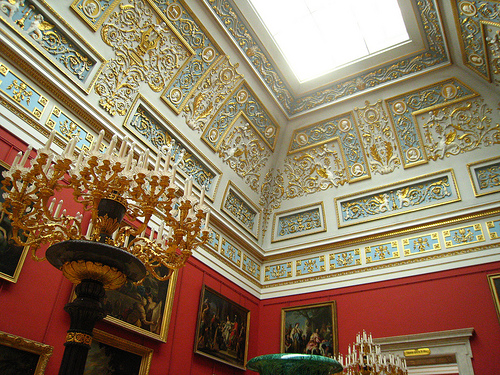By Rebecca Groen (The Cascade) – Email
Print Edition: December 6, 2011
“It was a feast to our senses.”
This was how provost and vice president academic Eric Davis and history professor Larissa Horne described their experiences in Russia when they gave a speech on Dec. 1, explaining why UFV should become involved in study tours in Russia. A slideshow full of photos displaying the beautiful architecture of St. Petersburg from a trip they took there in May of 2008 with a UFV student was used to accompany their message. “You’d be surprised how similar Russia is [to] Canada,” Davis said. “We’re both federations, we’ve both got a lot of land area, we have indigenous people, and we both deal with multiculturalism and [multiple] languages.”
During their travel, they showcased UFV on an international scale and piqued interest from abroad in our university. “Countries around the world are interested in how we do things,” said Horne, “they are interested in our pedagogy.” She continued by mentioning that while there are benefits to travel and study abroad, there also the possibility of looking into international video conferences wherein students from other countries would be able to attend lectures given here at UFV.
“We want to help change the schooling system in Russia,” she said. “They are looking for change. Right now there is a very formal relationship between students and teachers and the way they do things. They would like to adopt a more westernized pedagogy.” There was interest in creating scholarships and bursaries for students who would like to study abroad in Russia or for students in Russia to come to UFV to study and take in another culture.
Also discussed in this session was the student who accompanied them to St. Petersburg. “This student’s travel changed how he viewed Russia,” explained Horne. “His journal entries indicated his excitement to learn in Russia, as well as how his view of Russia changed as he got to know it more.”
Davis also emphasized the value of a study tour for different types of students. For example, art students would benefit from the different cultural influences. “St. Petersburg is a very fashionable city,” he laughed. “Visual Arts students as well as fashion students would benefit from study here.” Perhaps in the future this may become a possibility.


